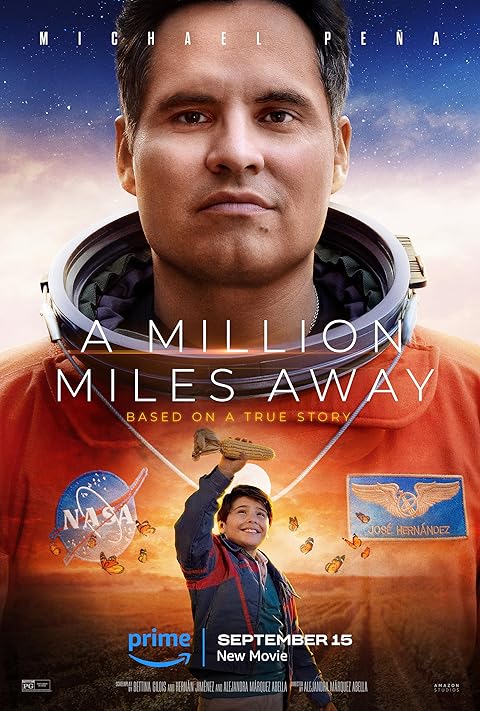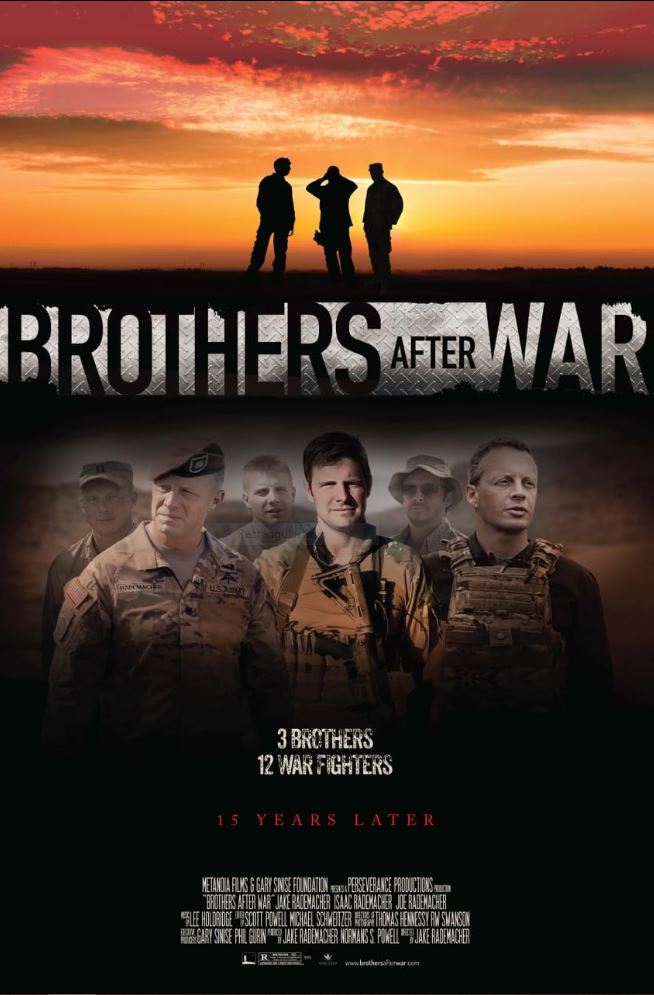“Our Veterans Need Us to Listen to Them”

| None | Light | Moderate | Heavy | |
|---|---|---|---|---|
| Language | ||||
| Violence | ||||
| Sex | ||||
| Nudity |
What You Need To Know:
BROTHERS AFTER WAR has some editing errors. However, the movie depicts many powerful, raw, emotional, often uplifting stories. BROTHERS AFTER WAR has a strong moral worldview. The director and others bring hope and healing to survivors, both veterans and families. BROTHERS AT WAR is a great watch, but it involves some serious topics. It also has a few strong obscenities and profanities, some bloody war violence, and references to overcoming substance abuse. So, MOVIEGUIDE® advises strong caution.
Content:
Strong moral and patriotic worldview, but with no religious content, honors American military veterans and their families while trying to bring hope and healing to them, with many soldiers and veterans talking about how much they struggle to process the horrors and hardships of war and survival, some of the veterans end up in really dark places, but the Director Jake Rademacher’s whole mission throughout the movie seems to combat this by having a variety of people share their stories and the hardships of the military life can have, and the toll the hardships take on them, soldiers and wives and children tell stories of heartbreaking and hopeful situations, plus movie stresses bringing hope and promotes helpful therapy;
Two people use “f” words two or three times each, and two soldiers utter two strong profanities using the name of Jesus;
Brief but very strong violence and some other violence includes moments where soldiers are shooting at people and cars (sometimes at dummies and sometimes at real people), blood is shown with wounded soldiers, people are shown in a few instances with a graphic loss of limbs, and suicide is also mentioned numerous times by different people.;
No sex;
No nudity;
Implied use and abuse of alcohol is discussed by numerous vets but never shown and never talked about positively;
No depicted smoking or drug use, but veterans talk about sometimes seeking solace in drugs; and,
Director admits to being divorced as do a few of the people he interviews.
More Detail:
BROTHERS AFTER WAR follows Jake Rademacher, a man who has dedicated his life to the military and to helping veterans readjust to civilian life. The whole premise of his journey in this documentary is to hear the stories of not only his family members, but other veterans of various types. He goes through interviewing Army, Navy, Marines, Airforce, infantry, and special forces men and women in the U.S. Military. A good chunk of his interviews include his family and fellow soldiers Issac and Joe, his brothers, along with his nephew, Quinton. He also interviews their families to see how being in the military and deployment affects the relationships among military families.
The answer to this is that it being in a military family is more difficult than the government and the press make it out to be. Many wives talk about how not only moving from place to place without setting roots down is difficult, but they have to balance being single parents practically while simultaneously worrying about their spouses and whether or not they are safe. When their spouses come home, the children take a while to adjust to them living there. On top of that, they are constantly fighting their own internal battles due to PTSD and flashbacks.
Jake interviews more than just his family. The interviews include, but aren’t limited to, Jason Grundy, Jennifer Hammenson, Danielle McCann, Ernest Ward, Chris McKay, and so many more vets to see how they adjusted. Some adjusted quickly, finding things that helped them cope or still be a part in helping their fellow soldiers. Some throw themselves into parenthood and childcare. However, many others have issues adjusting. Some vets, due to the horrors and stresses of war, found solace in alcohol and drugs. Many fell into depression with suicidal thoughts and some even told stories that ended much more tragically.
That said, BROTHERS AFTER WAR has a powerful positive message promoting hope and healing. The movie sheds light on people’s stories so they get a chance to show people the struggles of the life of a military family, and to help them find support and healing so they can live a more abundant life. Jake Rademacher and his family want to help give support, hope and therapy to surviving veterans while simultaneously helping them. Regrettably, the movie avoids putting these subjects in a religious context.
Also, BROTHERS AFTER WAR is a documentary for older teenagers and adults. For example, the movie contains a few strong obscenities and profanities. It also has some very strong war violence with some blood. While not as graphic as many modern war movies, it still doesn’t shy away from the heavy violence that occurs in Iraq and Afghanistan. The movie also includes some discussion of PTSD, suicide and trying to overcome alcohol and drug addiction.
Thus, BROTHERS AFTER WAR is powerful depiction of what it’s like to be a soldier. It also shows the love and compassion American soldiers and their families need from the people in their communities and across the country.


 - Content:
- Content: 

